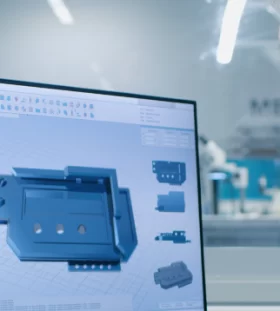Overview of Popular 3D Rendering Software Packages and Features
Architectural 3D rendering is an ever-growing field of technology. It provides a unique and eye-catching way to showcase architectural designs. Through this technique, architects can create stunning 3D images. They offer potential buyers or clients a realistic representation of what the proposed project may look like in its finished form.
Types Of 3D Rendering Software Available
Software for 3D rendering services has become an essential tool for modern-day artists. Whether you are creating interactive 3D visuals, designing virtual reality (VR) applications, or simply looking for a way to bring your ideas to life, 3D rendering software can help you achieve your goals. However, with so many options, deciding which platform is best for your projects can take time and effort.
Popular 3D Rendering Software Packages and Their Features
- Autodesk Maya
Autodesk Maya is one of the industry leaders in 3D animation and modelling tools. It offers powerful features such as NURBS modelling, particle systems, dynamic simulations and more. Additionally, it has an intuitive user interface. This makes it easy to create complex models from scratch or to use pre-made assets.
- 3D Max
3ds Max has been developed by Autodesk. It is another widely used 3D modelling tool in the industry. It uses an extensive library of textures and materials and powerful tools. They allow you to quickly and efficiently create detailed environments.
- Cinema 4D
Cinema 4D is another popular program for creating high-quality 3D models and animation. It offers an array of sophisticated tools. These include character rigging, physical simulations, shaders and much more. These enable users to easily create stunning visuals.
- Blender
Blender is a free, open-source alternative to the commercial packages mentioned above. It is less feature-packed than its counterparts. It still provides a robust set of tools. These tools allow users to create highly detailed models. They can do this while maintaining relatively small file sizes compared to other programs on the market.
- Unreal Engine
The Unreal Engine provides developers with an immense array of features. These enable them to create immersive virtual worlds with unmatched realism and detail. Unreal Engine is one of the most comprehensive options when it comes to game development platforms. It offers everything from photorealistic lighting systems to advanced physics engines.
- Unity
Unity is another popular game engine used by indie developers worldwide. This is due to its ease of use and affordability compared to other platforms on the market today. In addition, it has a vast library of assets. This enables users to rapidly prototype their ideas before committing resources to production-level games or applications.
Pros and Cons for Each Platform
Now that we have reviewed some of the top 3D rendering software packages available today, let’s dive into their pros and cons:
Autodesk Maya
Pros:
- Extensive libraries
- Intuitive user interface
- A comprehensive range of features
- Support for VR applications
- High-level customization capabilities
- Efficient workflow
Cons:
- Complex learning curve
- Steep learning curve if you need to gain prior experience with other Autodesk products
- Higher price tag than some competitors.
3D Max
Pros:
- A comprehensive range of features
- Supports VR applications
- Good customer service
- A wide selection of plugins is available
Cons
- More expensive than competitors
- Complex learning curve
- Steep learning curve if you don’t have prior experience with other Autodesk products
Cinema 4D
Pros:
- Easy-to-use user interface
- Real-time preview capabilities
- Wide range of effects available
- Excellent customer service
Cons:
- Limited support for VR applications
- Not ideal for large-scale projects
Blender
Pros:
- Free, open-source software
- Responsive development community
- Lightweight file size
- Ability to run on low-powered hardware
Cons:
- A limited selection of advanced effects compared with other programs on this list
Unreal Engine
Pros:
- Realistic graphics capabilities
- Robust physics engine
- Dedicated development community
- Professional license option available
Cons:
- Steep learning curve if you don’t have prior experience in game development
Unity
Pros:
- Wide selection of assets available
- Intuitive user interface
- Cross-platform capabilities
Cons:
- Limited support for VR applications
How Can 3D Rendering Benefit Businesses?
Businesses have much to gain from using visualization in the construction process of 3D modeling services. Visualization has been used in some form or another for many decades. It has become more accessible and efficient than ever before. This is due to the advent of modern technology,
Now businesses can get a better idea of what their project will look like before breaking ground. They can do this by using visualization software and 3D modelling tools.
Finally, cost savings in construction time and materials are another significant benefit for businesses when utilizing visualization during their project planning process. By visualizing what the project will look like beforehand, businesses can identify potential problems or issues before they arise. This saves them time and money in the long run.
The Conclusion
Architectural 3D rendering is a potent and beneficial tool for architects and contractors today. Ultimately, architectural 3D rendering has become an invaluable asset in the architecture and building industry. It provides architects and contractors with the tools to help them. With these tools, they can create stunning projects that meet their clients’ needs.

